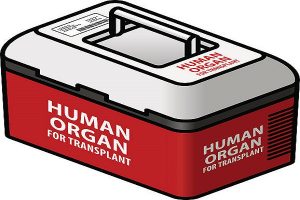
Organ transplants have been an essential medical procedure for decades, providing hope to individuals suffering from organ failure. However, the success of organ transplants has been limited by the availability of donor organs and the challenges of preserving organs for transplantation. Recent advances in medical technology have led to the development of organ care products, which could revolutionize the field of organ transplantation.
What are Organ Care Products?
Organ care products are a series of medical devices and solutions that are used to preserve organs for transplantation. These products are designed to maintain the organ’s health and function during the transportation and storage process, ensuring that it remains viable for transplant.
Organ care products come in different forms, including:
- Perfusion devices:
Perfusion devices are used to keep the organ in a viable state by providing it with nutrients and oxygen. The devices are connected to the organ’s blood vessels and pump a specialized solution through the organ, maintaining its function.
- Preservation solutions:
Preservation solutions are a type of organ care product that is used to preserve the organ while it is being transported to the transplant recipient. These solutions are designed to protect the organ from damage and maintain its viability.
- Temperature control devices:
Temperature control devices are used to regulate the temperature of the organ during transportation and storage. These devices are designed to keep the organ at a specific temperature, preventing damage and maintaining its viability.
Get Sample PDF Here>>> https://www.alliedmarketresearch.com/request-toc-and-sample/13754
Benefits of Organ Care Products:
- Increased organ viability:
Organ care products have been found to increase the viability of organs, ensuring that they remain viable for longer periods. This can increase the number of available organs for transplant, providing hope for individuals on waiting lists.
- Improved organ quality:
Organ care products have been found to improve the quality of organs, leading to better transplant outcomes. This can lead to fewer complications and a better quality of life for transplant recipients.
- Increased transport distance:
Organ care products can increase the distance that organs can be transported, enabling organs to be transported from remote locations. This can increase the availability of organs for transplant and provide hope to individuals who live in areas with limited access to donor organs.
- Reduced cold ischemic time:
Cold ischemic time is the time between when an organ is removed from the donor’s body and when it is transplanted into the recipient. This time is critical to the success of the transplant, as the longer the organ is outside the body, the more likely it is to be damaged. Organ care products have been found to reduce cold ischemic time, leading to better transplant outcomes.
Potential of Organ Care Products:
Organ care products have the potential to revolutionize the field of organ transplantation, providing hope for individuals suffering from organ failure. Some of the potential uses of organ care products include:
- Increased availability of organs:
Organ care products can increase the availability of organs for transplant, providing hope for individuals on waiting lists. The use of these products could lead to an increase in the number of successful transplants, improving the lives of transplant recipients.
- Expansion of the donor pool:
Organ care products could expand the donor pool by enabling organs to be transported from remote locations. This could increase the number of available organs for transplant and provide hope to individuals who live in areas with limited access to donor organs.
- Improved transplant outcomes:
Organ care products could improve transplant outcomes by increasing the viability and quality of organs. This could lead to fewer complications and a better quality of life for transplant recipients.
- Reduced costs:
Organ care products could reduce the costs associated with organ transplants by increasing the availability of organs and improving transplant outcomes. This could lead to a reduced financial burden for patients, insurance companies, and healthcare systems.
Challenges of Organ Care Products:
While organ care products have the potential to revolutionize the field of organ transplantation, there are still several challenges that need to be addressed. Some of the challenges include:
- Cost:
Organ care products can be expensive, which may limit their availability and use. The cost of the devices and solutions must be reduced to increase their accessibility.
- Logistics:
The logistics of using organ care products can be complex. These products require specialized training and equipment, and there may be challenges with the transportation and storage of the devices and solutions.
- Regulatory approval:
Organ care products are considered medical devices and must be approved by regulatory agencies before they can be used. The approval process can be lengthy and may limit the availability of these products.
Organ care products have the potential to revolutionize the field of organ transplantation, providing hope for individuals suffering from organ failure. These products could increase the availability of organs, expand the donor pool, improve transplant outcomes, and reduce costs. However, there are still several challenges that need to be addressed, including cost, logistics, and regulatory approval. The development and implementation of organ care products is a promising advancement in the field of organ transplantation, and further research and development are needed to fully realize their potential.
Contact Us:
David Correa
USA/Canada (Toll Free): +1-800-792-5285, +1-503-894-6022
help@alliedmarketresearch.com

